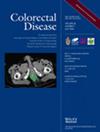The lungs represent the second most common site of colorectal cancer metastases. Although surgery is commonly considered the best treatment, many other invasive and noninvasive procedures and treatments have been adopted to improve patient survival and there is no clear evidence in the literature of which is the more effective. The aim of this work was to identify which treatment confers the best gain in overall survival for patients with pulmonary metastases from colorectal cancer.
A systematic review and network meta-analysis of survival hazard ratio (HR) including 11 studies was conducted following the PRISMA guidelines and the Cochrane protocol on PubMed, Scopus, Embase, Web of Science and Cochrane Library up to 31 December 2023. Surgery, image-guided thermoablation, stereotactic body radiotherapy, chemotherapy and best standard care, associated or alone, were evaluated. Chemotherapy was adopted as the treatment reference to define survival HRs. Network metaregression was then performed considering patients with pulmonary only or multisite metastases from colorectal cancer.
In patients with pulmonary metastases, the association of surgery, stereotactic body radiotherapy and chemotherapy is the best performing (HR 0.22), while the most effective components alone are image-guided thermoablation (HR 0.53) and surgery (HR 0.57), although this was not significant. After metaregression, multimodal treatments still represent the strategy conferring the best survival gain. However, while surgery (incremental HR 0.26) has the most important role in patients with isolated pulmonary metastatic disease, chemotherapy (incremental HR 0.3) leads for patients with multimetastatic disease.
Multimodal treatment confers the best gain in overall survival in patients with pulmonary metastases from colorectal cancer. Combining multiple therapeutic strategies improves survival, with oligometastatic patients benefiting more from surgery and local therapies while multimetastatic patients mainly benefit from chemotherapy, although ablation and surgery can enhance outcomes when feasible.



